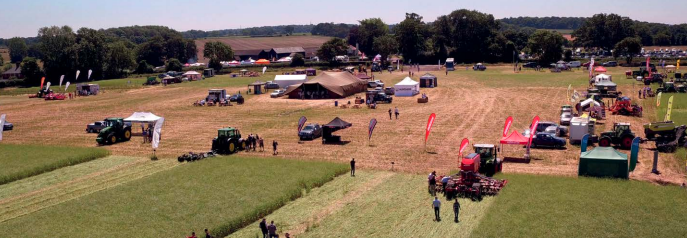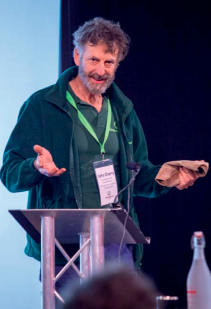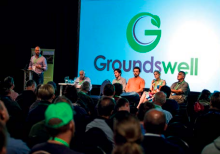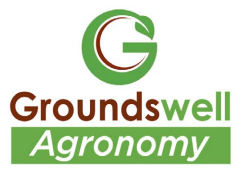By Richard Harding, ProCam – all views are my own

It was very refreshing to read Adam Driver’s Farmer Focus article in issue 10 of Direct Driller. In this update, Adam echoed many of the thoughts I’ve held since I began my agricultural studies. It seemed then, as it does now, that our constant desire to externalise the problem and then purchase the solution – not by any means unique to farming – is a very flawed approach. We are all seduced by technology, me included, sometimes. Which leads to the assumption that nothing, but a man-made solution is able to provide the answer to agriculture’s biggest challenges, whether they are perceived or real. This takes us back to Adam’s article and his comment about the widely purported “feed the world” narrative, which is really about encouraging increased production at all costs, rather than recognising that the reality of hunger is more about politics, the unevenness of food distribution and fundamentally historic economics.
An illustration of our addiction to technology came just last week. At the end of a long day of soil sampling – stubbles to be precise – on a sunny September autumn afternoon, I suddenly felt that sinking feeling while discussing soil sampling with a local farmer.
We were comparing the very pretty variable spreading maps that had just been produced by a local liming company, with my just-completed more random soil sampling done by hand. To my surprise the farmer was more pragmatic, and wise enough to see that while this would be perceived as progress by many it was unlikely to produce a more reliable result than my random W sampling pattern across his fields. However, what I was doing couldn’t be achieved by those specific maps. By this I mean: picking up the nuances of soil friability, compaction, getting a sense of biological activity through smell, and the general suitability of the soil for direct drilling of the next crop.
Or, what the next crop should be, based on the soil’s current state; for instance should we be sowing another cereal if there was enough friability, with or without a companion. Or should it be a large seed like a bean to restructure the slumped soil needing some restructuring with roots not iron? While I completely see the value that precision farming has, we occasionally need to ask the right questions of it and its interpretation.
I agree with Victoria Sweet’s question in her article about Slow Medicine, that sometimes it could be a case of “Is inefficiency more efficient than efficiency?” (ref. Gods Hotel by Victoria Sweet, Riverhead Books. ISBN-13: 978-0399573316).

While looking round for some inspirational words I came across something I had seen a number of years ago in Brake the Cycle, a 2013 fundraising video for the Building Man Festival. To quote from that: “Given we’ve had the cosmic shift, we are super apes, it’s time to be evolution. Let us set our hopes high, have sky aspiring ambitions and reimagine our collective potential”. While there’s no denying this year farmers are feeling jaded by the extremely difficult season just gone, we need to keep pushing forward and resist the temptation to revert back to type and do what we’ve always done. The caveat to that statement is always to do so within the risk profile of the farm business as it stands today. The only question left is how exactly do we do that, and where should the enlightened advice for this come from now and in the future?

The enlightenment has come in the shape of a new agronomy service from the home of the Groundswell Show and Conference.
As many readers of Direct Driller will know, the Groundswell Show and Conference was born out of a strong desire by the Cherry family to spread awareness of Conservation and Regenerative Agriculture techniques. This involved creating a forum for learning and networking, not only for farmers but for all those who are involved in the food supply chain. While discussing the farm’s agronomy around the kitchen table at Weston Park Farm back in 2019 it seemed obvious, as there are a growing number of converts to farming in this way, that the natural next step was to provide a Groundswell agronomy and consultancy service. A service available to anyone interested in investigating or implementing anything from a complete system rethink to just one specific technique of Conservation or Regenerative Agriculture. Tailored to provide as much, or as little, ongoing support as is required.
A common request among farmers and attendees of the Groundswell Show and Conference is for advice on implementing ideas picked up at Groundswell, on their farms. Farmers often talk of feeling isolated when surrounded by peers who may not be supportive of a change to the radically different system from the one they are used to. Groundswell Agronomy approved Consultants will be able to provide the advice needed to ensure the rural farm business is financially resilient and agronomically sustainable whatever the farming system – arable, mixed farming, horticulture or mainly livestock.
“The core underlying value of the Groundswell Agronomy Service is: independent advice and knowledge transfer through industry-wide collaboration” –Richard Harding
The Groundswell Agronomy and Consultancy is made up of a national group of independent consultants offering a wide range of services which can be tailored to each unique situation and key features include:
1. Independent consultancy advice charged by the hour or day.
2. A traditional agronomy service charged by the acre with or without financial benchmarking which includes both confidential benchmarking provided by Land Family Business, charged on an area basis and membership of a regional Groundswell discussion group, which farmers are encouraged to join.
3. Trials and telephone agronomy service specific to Conservation Agriculture.
4. Practical support from experienced farmers practicing Conservation and Regenerative Agriculture.
5. Groundswell Farm – hosted individual technical events.
6. Livestock consultancy –specific to Conservation and Regenerative Agriculture.
7. Environmental Scheme planning and Direct Payment Scheme advice.
8. Facilitating Groundswell local meetings of farmers with reference to each specific regional need.
Just one example of existing industry collaboration is that of the first Groundswell Agronomy benchmarking and discussion group, facilitated by Gary Markham from Land Family business. While only in its third full year it is not only providing some reliable data on the profitability of farms practicing Conservation Agriculture it always combines discussions on the physical and financial performance of the group’s farms, striving for continual improvement through knowledge transfer.
Below are some of the provisional findings from the group’s results. We look forward to expanding the Benchmarking groups and if you’re interested in joining a group in your area contact richard@groundswellag.com
No-till/ Conservation Agriculture compared with conventional ploughbased system*:
• Capital value of machinery -£186/ ha less
• Capital value of machinery -£13/ tonne of wheat less
• Variable costs -£74/ha less
• Working capital -£260/ha less (for example £130,000 less on 500ha farm)
*Source: Groundswell & LFB Benchmarking 2018/19
One main advantage of a CA system particularly in a difficult season like 2020 has been the reduced capital required to run the farm business. Allowing the risk to be diversified over a range of non-farming activities much like a CA cropping rotation.
To be part of reimagining your collective potential with Groundswell Agronomy contact richard@groundswellag.com
